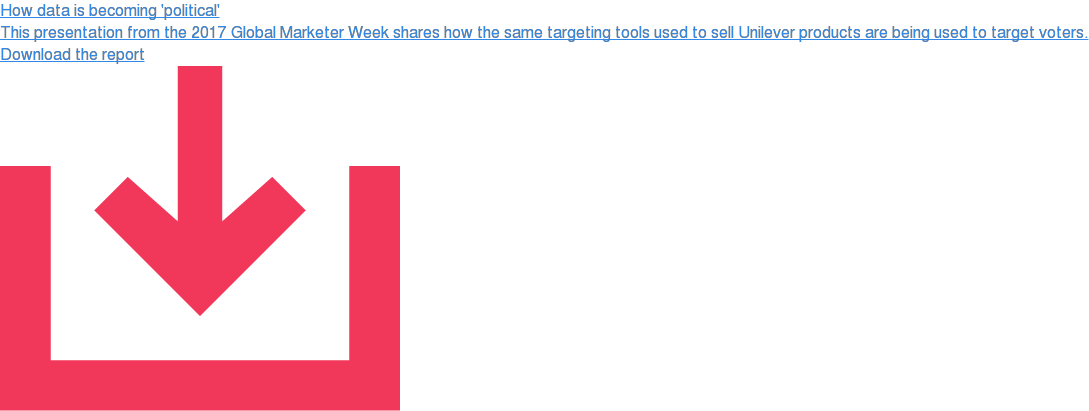Appeals to identity have worked to bring about significant change in the political mood, but why did it work to such a degree? David Penn, of Conquest UK, asks whether marketers are thinking about the psychological overlap that allows people to identify with a cause.
As we fast approach (yet another) election in the UK, I've been reflecting on what drives voter choice in an era when electoral outcomes seem so volatile and unpredictable. Will voters make a rational choice based on the policies on offer, or an emotional one perhaps reflecting party affiliation? Or will it be something else? Looking at three recent, high profile, elections– the US and French presidential elections, and the Brexit referendum in UK - there was clearly something at play beyond policy and party affiliation. Indeed in the US, party affiliation fragmented as the political outsider (Trump) grabbed the Republican nomination from traditional party hopefuls, and in France, the two main parties couldn't even get a representative through to the final ballot.
In the UK, the Brexit vote crossed party lines with over 40% of Conservative voters voting to remain and around a third of Labour supporters opting to leave the EU. It has been claimed that the mass of leave voters were chiefly motivated by fears of immigration, which cut across traditional party affiliations, although Linda Colley, Professor of Politics at Princeton, offers a different perspective:
"The vote confirmed…a sense of bereftness. Lots of people … seem to have opted for Brexit out of a near mystical sense that it would somehow give them their country back. This did not simply stem from worries over immigration."
Colley's point is not that immigration didn't matter, but rather that worries about it were a symptom of a deeper underlying concern about something else: a loss of national identity. It was this emotion that arch-Brexiteer, Nigel Farage, encapsulated so brilliantly in his slogan, 'We want our country back', which tapped into two powerful metaphors: theft and loss. It was left to the voter to decide exactly what had been stolen or lost but the implication was clear – so clear that Donald Trump and Marine Le Pen more or less adopted it for their campaigns.
What Trump and Le Pen exploited was an almost atavistic yearning for the values of a 'lost' society: perhaps the one that existed before multi-culturalism; before political correctness; before mass immigration; before the EU or NAFTA. Moreover, these two leaders were able to project and personify these 'lost' values in a way with which many voters identified. Although Le Pen failed to win, her vote share of 35% is a remarkable achievement for an anti EU, anti-Euro and anti-immigrant candidate.
Even in parliamentary systems an individual politician's charisma, or lack of it, can have a big influence on the electoral outcome. Theresa May is no one's idea of a charismatic leader, yet seems almost certain to win big in next month's general election. Why? Because many see her as someone who will stand up for Britain in the face of 27 member states and a hostile Brussels bureaucracy. Perhaps she's tapped into the national mythology of 'standing alone' against European tyranny and become a personification of national defiance – a persona with which many seem to identify.
So, if identity and identification are such powerful drivers of success in politics, does this also apply to brands? And if you wanted to project and personify values that truly resonate, how could you be sure that the values you've chosen for your brand are the right ones?
Cognitive science has shown that we often subsume the personality and values of the people we feel closest to. The result is self-other overlap, whereby our mental representations of our own identity merge with our perceptions of someone else. Because brands also act as relationship partners, they too create overlap with the psychological self, with brand lovers identifying with the values that their brand represents.
My company has been trying a new approach that measures the psychological overlap of brands with people who love (and don't love) them. It uses a new metric that quantifies the psychological distance between self and the perceived personality of a brand. It is also able, at a truly granular level of detail, to predict those values that actually drive brand love."
What we've discovered is that what really defines the most successful brands, rather like our current batch of politicians, is their ability to 'match' their lovers on the values they hold dear. So in this age of uncertainty, maybe it's time for brand owners to take a leaf from the politicians' book and take a fresh look at whether their brand identity really does match up to their lovers' expectations.


